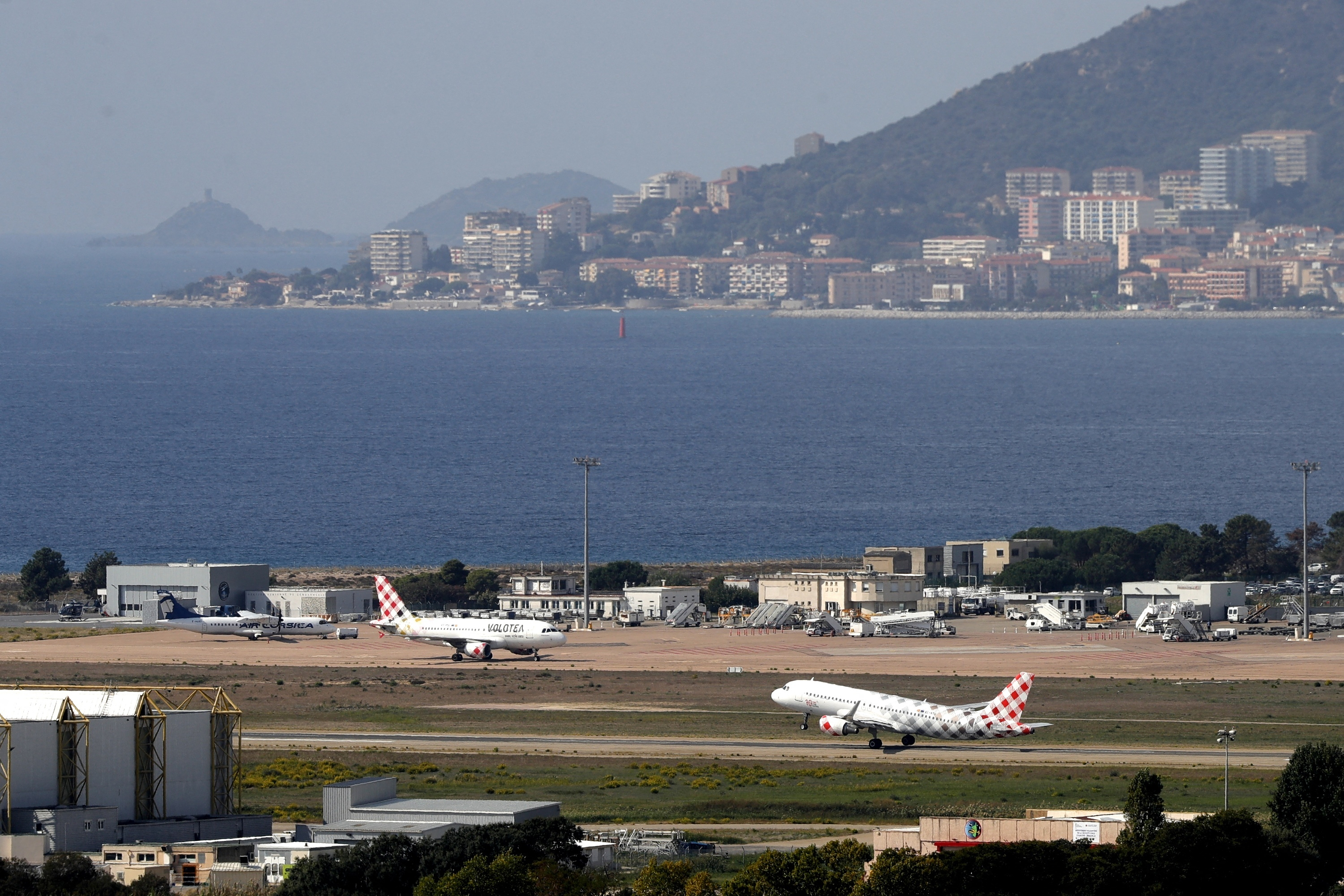Starting delay. It took years and a decision by the Council of State for the technical control of motorized two-wheelers to begin to become a reality in France. In stores for at least two years, and while everyone agrees that "everything is ready", the application of this new directive - yet desired by the European Commission since 2014 - is still awaited. So much so that a question arises: why what has already been mandatory since 1992 for cars is taking so long to see the light of day for scooters and motorcycles?
"It's above all political", says Tony Renucci, the general manager of the Respire association, who has been fighting for several years to set up technical control for motorized two-wheelers which must above all make it possible to fight against air and noise pollution. “If we go back to the history of this subject, it has been going on for a long time: first there was the European Commission directive in 2014, then the government decree in August 2021, which ultimately did not lasted more than a day, canceled by Emmanuel Macron", he recalls, recalling that at the time, "we are coming out of the sequence of yellow vests", we are "in the middle of the presidential campaign" and everyone " fears the crystallization of conflicts".
Result, "more sound, more image" and "since the sequence has only lasted", regrets the associative activist, who accuses the government "of playing the clock for two years (...) not to assume a decision which was nevertheless going to be imposed on him". Supported by the associations Ras le Scoot and Paris without a car, Respire had urgently seized the Council of State to demand the application of the European directive as soon as possible. The highest administrative court in the country had finally taken the decision to "reinstate the decree which provides for the technical inspection of motorized two-wheeled vehicles", ordering the executive to apply it as planned on January 1, 2023 "according to a schedule for staggering the checks by age of the vehicles'.
Asked about this, the Minister Delegate for Transport Clément Beaune reacted to the announcement by the Council of State on Friday, affirming that the government "would of course apply the decision of the Council of State" and that he himself "would specify in the next few days the calendar and the modalities of the technical control". What about the long time for the enforcement of the technical control of motorized two-wheelers? The minister defends himself and claims to have worked on it regularly since the decision of the Council of State: "I have carried out in-depth consultations in recent months with motorcycle associations and environmental and road safety associations".
For his part, Didier Arnoux, the general delegate of the angry bikers (FFMC) ensures that the establishment of a technical control in the coming months is unthinkable. "Once the decree has been issued, the law obliges the government to launch a public consultation for 6 weeks" he continues, not to mention, according to him, that the technical control centers have to date "neither the equipment nor staff" to carry out these checks. "How do you expect people who have never done two-wheeler technical checks to do it overnight?" he asks. Considering that the decision of the Council of State - which, in his eyes, "clearly repudiated the President of the Republic, the Prime Minister and the Ministers of Transport" - is "legally difficult to counter", the director of the FFMC however promised that he would do "everything possible" to ensure that the implementing decree is not taken.
He pleads for "alternative measures" to compulsory technical inspection to be put in place, citing in particular the conversion bonus to help people move towards more virtuous models, the implementation of the obligation to wear gloves for drivers and passengers or even the strengthening of communication, with prevention campaigns aimed at improving the safety of all motorized two-wheeler drivers. A solution which was "supported at the time by Transport Minister Jean-Baptiste Djebbari" and which had "not been rejected by the European Commission", insists Didier Arnoux, who now regrets that the Council of State "entitles three associations that know nothing about it".
Two speeches that clash completely, while Tony Renucci affirms that by seizing the Council of State, the associations Respire, Ras le Scoot and Paris without a car had finally "done a service" to the government, favorable to the establishment of this technical control, but who did not want to "assume the responsibility of making this decision". But today, the State "no longer has a choice" and must apply the decision "within two months", believing that otherwise it would become "very worrying" to no longer respect the decisions of the Council of 'State. However, the director of the Respire association admits that there could be "need a little time for the concrete implementation" of technical control for motorized two-wheelers, in order to equip the centers and train the technicians.

 His body naturally produces alcohol, he is acquitted after a drunk driving conviction
His body naturally produces alcohol, he is acquitted after a drunk driving conviction Who is David Pecker, the first key witness in Donald Trump's trial?
Who is David Pecker, the first key witness in Donald Trump's trial? What does the law on the expulsion of migrants to Rwanda adopted by the British Parliament contain?
What does the law on the expulsion of migrants to Rwanda adopted by the British Parliament contain? The shadow of Chinese espionage hangs over Westminster
The shadow of Chinese espionage hangs over Westminster What High Blood Pressure Does to Your Body (And Why It Should Be Treated)
What High Blood Pressure Does to Your Body (And Why It Should Be Treated) Vaccination in France has progressed in 2023, rejoices Public Health France
Vaccination in France has progressed in 2023, rejoices Public Health France Food additives suspected of promoting cardiovascular diseases
Food additives suspected of promoting cardiovascular diseases “Even morphine doesn’t work”: Léane, 17, victim of the adverse effects of an antibiotic
“Even morphine doesn’t work”: Léane, 17, victim of the adverse effects of an antibiotic Collection of booklet A stalls in March
Collection of booklet A stalls in March Kering expects a 40 to 45% drop in operating profit in the first half
Kering expects a 40 to 45% drop in operating profit in the first half Smartphones, televisions, household appliances… MEPs adopt a “right to repair”
Smartphones, televisions, household appliances… MEPs adopt a “right to repair” Fintechs increasingly focused on business services
Fintechs increasingly focused on business services The standoff between the organizers of Vieilles Charrues and the elected officials of Carhaix threatens the festival
The standoff between the organizers of Vieilles Charrues and the elected officials of Carhaix threatens the festival Strasbourg inaugurates a year of celebrations and debates as World Book Capital
Strasbourg inaugurates a year of celebrations and debates as World Book Capital Kendji Girac is “out of the woods” after his gunshot wound to the chest
Kendji Girac is “out of the woods” after his gunshot wound to the chest The Court of Auditors scrutinizes the management and projects of the Center Pompidou
The Court of Auditors scrutinizes the management and projects of the Center Pompidou Skoda Kodiaq 2024: a 'beast' plug-in hybrid SUV
Skoda Kodiaq 2024: a 'beast' plug-in hybrid SUV Tesla launches a new Model Y with 600 km of autonomy at a "more accessible price"
Tesla launches a new Model Y with 600 km of autonomy at a "more accessible price" The 10 best-selling cars in March 2024 in Spain: sales fall due to Easter
The 10 best-selling cars in March 2024 in Spain: sales fall due to Easter A private jet company buys more than 100 flying cars
A private jet company buys more than 100 flying cars This is how housing prices have changed in Spain in the last decade
This is how housing prices have changed in Spain in the last decade The home mortgage firm drops 10% in January and interest soars to 3.46%
The home mortgage firm drops 10% in January and interest soars to 3.46% The jewel of the Rocío de Nagüeles urbanization: a dream villa in Marbella
The jewel of the Rocío de Nagüeles urbanization: a dream villa in Marbella Rental prices grow by 7.3% in February: where does it go up and where does it go down?
Rental prices grow by 7.3% in February: where does it go up and where does it go down? Europeans: “All those who claim that we don’t need Europe are liars”, criticizes Bayrou
Europeans: “All those who claim that we don’t need Europe are liars”, criticizes Bayrou With the promise of a “real burst of authority”, Gabriel Attal provokes the ire of the opposition
With the promise of a “real burst of authority”, Gabriel Attal provokes the ire of the opposition Europeans: the schedule of debates to follow between now and June 9
Europeans: the schedule of debates to follow between now and June 9 Europeans: “In France, there is a left and there is a right,” assures Bellamy
Europeans: “In France, there is a left and there is a right,” assures Bellamy These French cities that will boycott the World Cup in Qatar
These French cities that will boycott the World Cup in Qatar Football: VAFC supporters are ironic after their descent into National
Football: VAFC supporters are ironic after their descent into National Tennis: Carlos Alcaraz should play in Madrid
Tennis: Carlos Alcaraz should play in Madrid Football: victim of discomfort in the middle of a match in mid-April, Evan Ndicka will resume training with AS Roma
Football: victim of discomfort in the middle of a match in mid-April, Evan Ndicka will resume training with AS Roma Ligue 1: PSG almost champion, OM, shock for the C1… 5 reasons to follow an exciting evening
Ligue 1: PSG almost champion, OM, shock for the C1… 5 reasons to follow an exciting evening


















